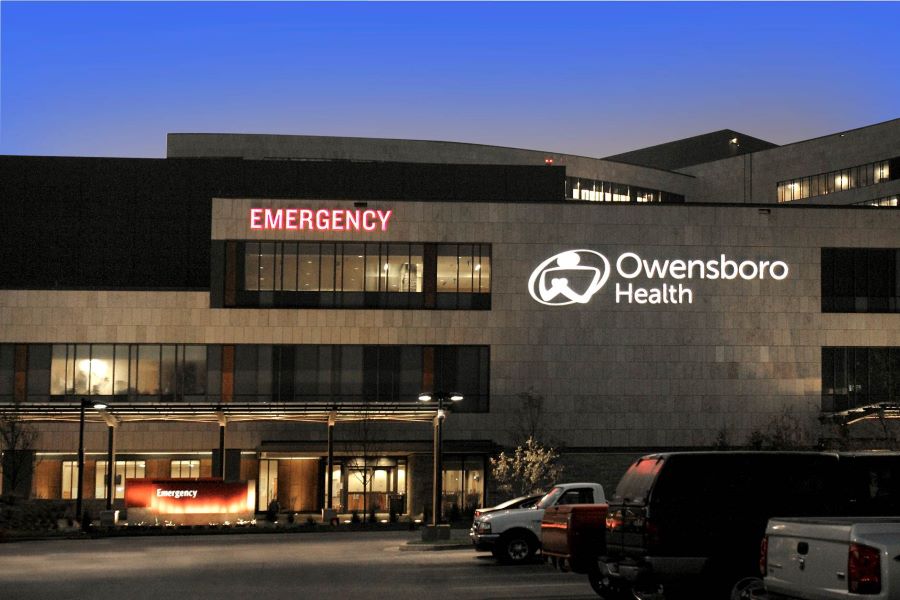Emergency Care For All

Expect to get care at Owensboro Health Emergency Departments regardless of your financial situation.
You can trust our commitment to your well-being because Owensboro Health follows the Emergency Medical Treatment and Active Labor Act (EMTALA). This act requires that if you come to the Emergency Department or Hospital Property for treatment, medical professionals must give you a medical screening examination before you share your financial information. If they determine you have an emergency medical condition, you must be stabilized before being sent home or transferred to another hospital for more care.
What EMTALA Means
Learn more about the meaning of certain phrases in EMTALA and discover what specific situations the act applies to.
‘Come To The Emergency Department’
The phrase "come to the Emergency Department" means anyone who presents to the Emergency Department or to the hospital property and requests an exam or treatment or has such a request made on his or her behalf.
- An individual has "come to the Emergency Department" if a prudent layperson would believe that an examination or treatment is needed based upon the person's appearance or behavior.
- If an ambulance contacts the Emergency Department regarding a patient en route, the patient must be accepted unless the hospital is on diversion status.
- An individual who is registered for outpatient services does not fall under EMTALA, even if that individual has an emergency medical condition while being treated as an outpatient.
‘Hospital Property’
"Hospital Property" is defined as the main buildings of the hospital and those buildings within 250 yards of the main buildings.
- Included are streets, hallways, parking lots, parking garages and other areas that are accessible to the public on the hospital's property.
- Not included are areas that are not part of the hospital, such as private physician offices, except that common areas of professional office buildings where office suites are rented to private physicians are included.
‘Medical Screening Examination’
The initial medical screening examination must be conducted by qualified medical personnel to determine with reasonable confidence whether an emergency medical condition exists.
- The medical screening examination is not synonymous with "triage," which is conducted to ensure that patients with the most acute conditions are seen more quickly.
- The medical screening examination will be an ongoing process accompanied by a record that reflects continuous monitoring of the patient.
- The medical screening examination may not be delayed for the purpose of obtaining financial information.
- Demographic information necessary to generate a patient chart and order tests associated with the screening examination may be obtained.
- Financial information generally will not be requested until the screening examination has been performed but may be obtained after the patient has been triaged and sent to an examination room pending availability of a physician.
‘Emergency Medical Condition’
An "Emergency Medical Condition" is a condition whose acute symptoms are severe enough that, without immediate medical attention, it is expected to:
- Jeopardize the health of the individual
- Seriously impair bodily functions
- Cause serious dysfunction of any organ or body part
"Symptoms" include pain, psychiatric disturbance, and substance abuse.
For a pregnant woman having contractions, an emergency medical condition exists, pursuant to EMTALA, if:
- There is not enough time to transfer her safely before delivery; or
- Transfer poses a threat to the health or safety of the woman or her unborn child
‘Stabilized’
A patient's medical condition has been "stabilized" when treatment assures, within reasonable medical probability, that the patient will suffer no material deterioration resulting from or during a transfer.
1. Stabilizing treatment must be provided within the capability of the entire hospital facility and staff and not just those services routinely available in the emergency department.
2. For a pregnant woman with an emergency medical condition, stabilization means delivery of the baby.
3. Stabilization does not mean that the patient does not require further medical treatment, merely that the patient may be discharged or transferred without causing further injury.
4. EMTALA no longer applies to a patient who, after being stabilized, is admitted to the hospital from the emergency department with the expectation of remaining overnight.
5. For transferring stabilized patients to another facility, refer to Policy #100-020.
Contact Us
Have health questions? Concerned about a fever, rash or other symptom?
Before you make an unnecessary trip to the Emergency Department or an Urgent Care Center call 877-888-6647.
*Note: In case of a medical emergency, dial 911 immediately.
Learn more about the Owensboro Health Call Center.
Emergency Department Patient Experience
Call 270-417-5988 to speak to an onsite patient advocate.